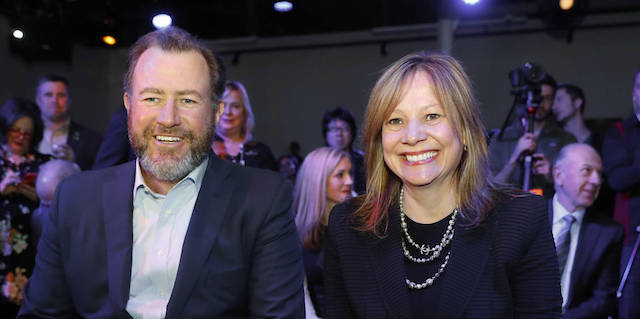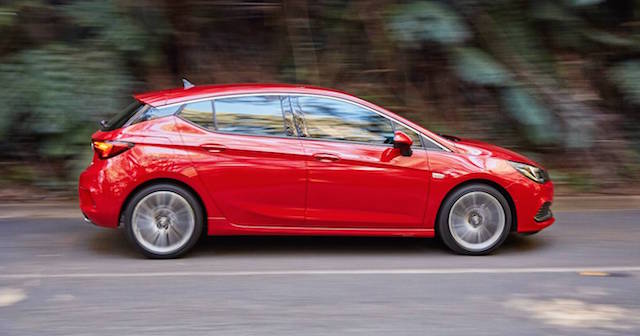
Former Waikato University graduate Dan Ammann is at the centre of the possible sale of General Motors’ European badges Opel and Vauxhall to France’s PSA Group, the company behind the Peugeot, Citroen, and DS brands.
New Zealander Ammann is responsible for managing GM’s global business operations and is preparing with company chief Mary Barra (pictured above with Ammann) to talk to Opel board members.
In a letter to Germany’s Opel and Britain’s Vauxhall employees, Barra asked for understanding and approval of the possible sale of the two brands.
The sale would “enable PSA Group and Opel/Vauxhall to improve their position in the rapidly changing European market, due to complementary strengths of both companies”, Barra wrote, adding, “we will do everything possible to ensure the interests of all involved are respected”.
Both PSA Group and GM confirmed they were in talks to “explore numerous strategic initiatives aimed at improving profitability and operational efficiency, including a potential acquisition of Opel Vauxhall by PSA. There can be no assurance that an agreement will be reached.”
The potential sale comes after GM reported its European operations lost money for the 16th consecutive year. The shortfall of US$257 million was an improvement on previous years and would have been much less had it not been for the devaluation of the British pound following Britain’s vote to leave the European Union.
Ammann will be front and centre in negotiations that centre around the full merger of operations between Opel, Vauxhall, Citroen, Peugeot and DS. Such a deal could have implications for Downunder badge Holden.
Holden closes down its manufacturing set-up in Australia later this year and will get its new line-up of rebadged models from Opel’s European plants.
The likes of the new Astra hatchback – pictured below and due to be launched in NZ next week – and Commodore would fall under PSA control if the deal goes ahead. But analysts say it is unlikely that Holden’s supply of new models would be disrupted under PSA ownership.
Getting hold of Opel and Vauxhall would make PSA the second biggest carmaker in Europe, with potential annual sales of more than 2.4 million units and a 16 per cent market share.
PSA would overtake Renault-Nissan to be in second place in Europe behind Volkswagen. Globally, a joint PSA/Opel/Vauxhall group would likely have around 4.4 million sales a year.
PSA itself came close to bankruptcy in 2013 following years of mounting losses. In a life-saving measure, the Peugeot family was forced to sell 25.6 per cent of its stake in the French carmaker, with 12.8 per cent going to the French government and a further 12.8 per cent to Peugeot’s Chinese joint venture partner Dongfeng.
Analysts believe Dongfeng has a vital financial part to play in PSA/GM negotiations. The outcome of its involvement, should PSA end up with Opel/Vauxhall, is likely an increased stake in PSA.



